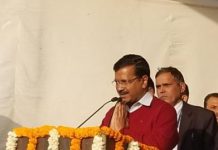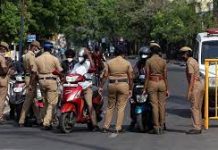
“India is a growing economic power and important geopolitical player. And as we presented with our Indo-Pacific strategy, we’re very serious about building closer ties with India.” This is what Canadian Prime Minister Justin Trudeau had to say at a press conference in Montreal amidst a diplomatic fracas over the killing of pro-Khalistan terror accused Hardeep Singh Nijjar in Surrey. The response was in the aftermath of External Affairs Minister S Jaishankar retorting that the countries must not “cherry pick” when to respect territorial integrity and non-interference in internal affairs – refuting Canada’s allegations that Indian “government agents” were responsible for the killing.
The impasse between both countries continues since Canadian Prime Minister Justin Trudeau made his claims in the Canadian Parliament. In a tit-for-tat, after expelling each other’s diplomats, India and Canada have curtailed people-to-people ties including India’s suspension of visa processing services for Canadian nationals. There have been no signs that the two countries are taking steps to narrow the widening gap between them. Jaishankar has made it clear that such extra judicial inter-state killings are not the policy of the Indian government.
The stern message to Canada and its allies makes it clear that the onus is on Canada to defuse the situation to normalise ties with India. Addressing the 78th UN General Assembly session in New York, S Jaishankar reaffirmed India’s independent foreign policy, saying that the days when a few nations set the agenda and expected others to fall in line are over. He conveyed to Ottawa that it was open to looking at ‘specific’ and ‘relevant’ information concerning the case and if Canada provides specific information, the government will look into it.
At such a juncture when Canadian PM Trudeau seems to have toned down his tone, the US National Security Adviser Jake Sullivan has added fuel to the fire, ‘We will defend our basic principles and consult closely with allies like Canada as they pursue their law enforcement and diplomatic process.’ Trudeau reportedly had briefed the leaders of some of Canada’s closest allies about the case, including UK Prime Minister Rishi Sunak, French President Emmanuel Macron, and US President Joe Biden.
It is up to Canada to diffuse tension and allay the fears of the Indian diaspora and students since Indian students account for a bulk of the foreign students in Canada as in 2022, 2.26 lakh students out of 5.5 lakh international students, or 40 per cent of the total, were from India. It becomes all the more important in view of an advisory issued by Ministry of External Affairs (MEA) suggesting Indian nationals and students in particular to exercise utmost caution and remain vigilant.













